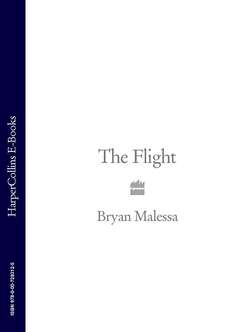Читать книгу The Flight - Bryan Malessa - Страница 10
ОглавлениеChapter 6
At the beginning of June, Ida received a short letter from Paul to say that he had been transferred east of Warsaw. He had included a photograph of himself sitting on the motorcycle that he rode to check the food supplies for the hospital he was supervising. ‘I’m not sure when you’ll hear from me again. There’s hardly enough time to sleep, much less to write letters,’ he concluded.
On the twenty-second, Ida was in the kitchen getting breakfast for the children with the radio on. As she leaned down to take a tray out of the oven, an announcer interrupted the music to introduce Joseph Goebbels, who said he had an urgent message from the Führer: ‘Weighed down with emotion, condemned to months of silence, I can finally speak freely to you, the German people. At this moment a march is taking place that, in its extent, compares with the greatest the world has ever seen. I have decided again today to place the fate and future of the empire and our people in the hands of our soldiers. May God help us …’ Before sunrise, Goebbels said, the army had launched an attack on Russia.
Ida thought of Paul on his motorcycle moving slowly alongside a column. The image frightened her, so instead she imagined him in a jeep behind the front line, and then at his desk in the office at the hospital. It was safer there, she told herself. She reminded herself of his arrival in Paris the day after it fell: he had avoided combat then, so why not now? Their love had cooled, but Ida wanted her children’s father to live. She tried to convince herself that when he finally returned for good he would be kinder to her and the children.
When Karl came downstairs half an hour later, she tried to think of a way to explain what had happened, but she didn’t understand why Germany was attacking Russia. She had understood the offensive against the French – during her childhood her father had talked incessantly about the injustices of the Treaty of Versailles – but she could think of no reason to justify their attack on Russia, especially since Russia in the Non-Aggression Pact had agreed not to attack Germany.
At breakfast, Karl noticed his mother distressed and anxious, but she said nothing and he didn’t ask; he had to meet a boy from a neighbouring village to go to a youth group meeting. When they arrived, he soon learned what had upset his mother: the attack was on everybody’s lips. One boy said his father was killing Russians at that very moment.
‘I thought he was an army cook. The only way he’ll ever kill someone is with food poisoning.’
A boy from Warschken, another village nearby, turned to Karl and said, ‘Maybe your father will send sweets from Moscow.’
‘Maybe he won’t go there,’ Karl replied.
‘Of course he will. The whole army’s going.’
They were convinced that the German army would beat the Russians, and anyone whose father or grandfather had fought at the battle of Tannenberg compared it with what was happening now. No one had grasped that the present offensive, three or four hundred kilometres to the east, was not just a battle but the start of a new war: the Soviet-German War.
Three million German soldiers were pitted against the same number of Russians, whose opposing army would soon grow to six million. The largest military invasion ever was under way. Across eastern Europe the boys’ fathers were behind thousands of heavy guns, pounding Russian positions. Soon the front would extend over four thousand kilometres, from the Baltic Sea in the north to the Black Sea in the south, the entire land mass of eastern Europe sealed behind a wall of German soldiers and guns.
One boy announced that Hitler himself was in East Prussia, unaware that the Führer had constructed new headquarters there from which to direct the offensive. The Wolfsschanze – Wolf ’s Lair – was buried deep in the forests south-east of Samland.
Before the offensive had begun, the Prussian army commanders – a constant source of irritation to Hitler – were far from united behind the decision to invade Russia. Some had agreed that if they had to go ahead, now was the best time to surprise the enemy because Stalin had murdered his best commanders during the Great Purge of 1936 to 1938. Others, though, would have preferred to abide by the Non-Aggression Pact: the steppes were too vast and the war was being fought on too many other fronts. Hitler himself had once written that an attack on Russia, as well as a western theatre, would spell the end of Germany.
